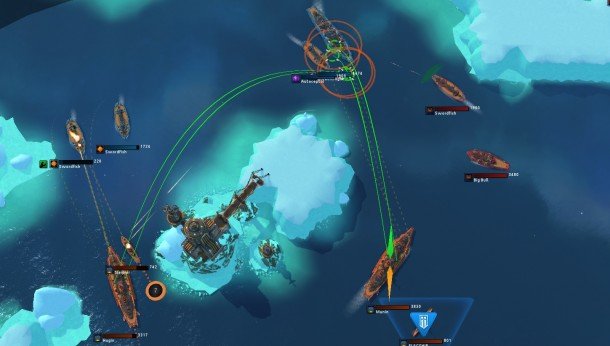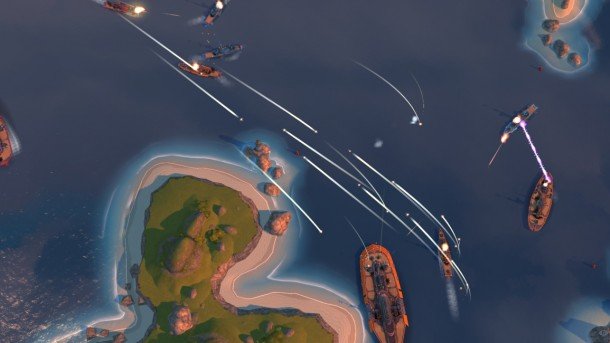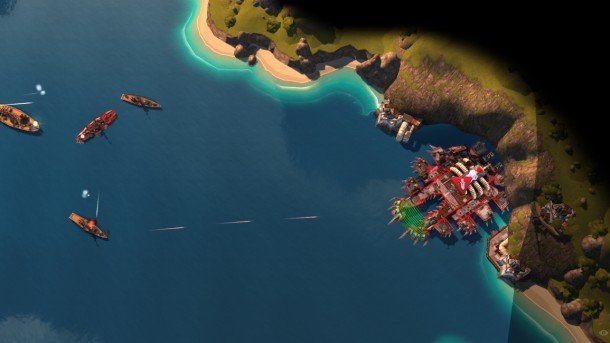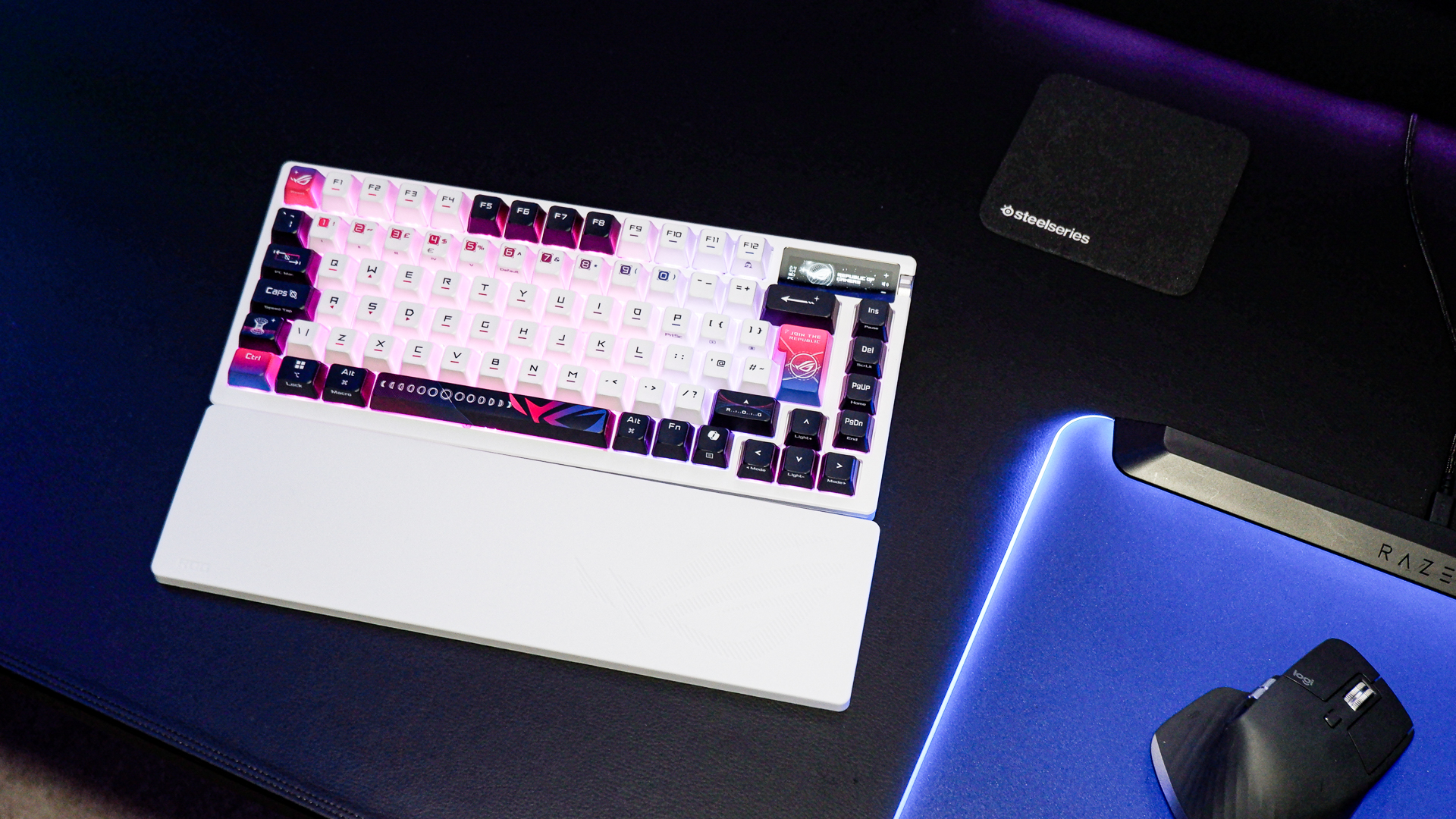
Preview by the salty sea-dog Craig Owens
I sunk my battleships. Two of them. I'd like to tell you a story of swashbuckling, Master & Commander -rivalling derring-do here, but sadly this wasn't a very auspicious sinking. It was right at the start of my second game of turnbased naval battler Leviathan: Warships that I made my fatal error - during the planning phase of the very first turn. I'd spent the previous round learning the ropes, guns, lasers and shields of Paradox's rather non period-specific vessels, not to mention the layout of the map we're battling in, and I started my second game with some clever trickery in mind.
"Once everyone's made their moves the results play out in real time."
I'd send my slow, lumbering dreadnought into the open ocean at the centre of the map, where the majority of my opponents' and teammate's forces would no doubt unimaginatively be. This, however, would be naught but a crafty feint. The fleeter parts of my fleet would be sneaking around the perimeter islands in order to strike at my otherwise engaged enemies' forces like an armada of knives in the back. It was tactical genius.
A turnbased game, Leviathan requires every player to input their moves - plotting courses, selecting targets, readying weapons and defences - at the start of each turn. Once everyone's made their moves the results play out in real time - meaning there's briny splash of psychology to succeeding: will your opponent try and tuck that damaged ship behind cover next turn, meaning you should probably go in for the kill now, or will it be ok to focus all your fire on more immediate threats? It's a game about anticipating your opponent, in other words, and that psychological aspect organically spools into second-and-third guessing them as you try to factor in how they'll be expecting you to behave.

Anyhow, I'm plotting courses for my genius ambush. The interface is clear and simple to parse - click on a ship and you're presented with a list of its armaments, defences and weapons, as well as a waypoint arrow and compass symbol: you just drag the waypoint to plot a course, adjusting the orientation of your ship by clicking on the compass. This is the point where I make my mistake - the courses I plot crisscross one another like the latticed spiderweb of disaster. I realise what's going to happen but it's too late: I've already committed to my moves and am forced to wait as my opponents decide theirs.
"It's carnage as all my ships try to turn and sail through one another."
It's carnage, self-annihilating carnage. My fleet started the match tightly bunched, so what happens next isn't so much a crash as it is a horrible squished up grinding, as all my ships try to turn and sail through one another at once, yellow damage counters flinging off them like feathers during moulting season. By the time the turn ends one ship is gone and the other is very far from ship-shape.
Leviathan's presentation is clean and functional for the most part, certainly not lavish (presumably to achieve parity with its iOS and Android siblings), but I'm amused upon zooming in for a close-up on my stricken vessel to hear the sounds of fires raging accompanied by the wailing of alarms.
Keep up to date with the most important stories and the best deals, as picked by the PC Gamer team.

I spend the next turn trying to separate my mashed-together ships. I do so (still managing to scuttle the other in the process) but by then the enemy closing in. The third turn is a massacre - my ships are now in range of the enemies cannons and don't last long.
Despite my ineptitude, Leviathan clearly offers a robust framework for turn-based strategy. It might be lacking in sheen, but it's brightly coloured warzones recall Battlefield 1943's cheerful carnage, while its fleet-building and ship customising aspects should give you something to do during the inevitable downtime in which you wait for other players to complete their turn. Paradox's game could well be worth your time when the good ship Leviathan officially set sails next week.
PC Gamer is the global authority on PC games—starting in 1993 with the magazine, and then in 2010 with this website you're currently reading. We have writers across the US, Canada, UK and Australia, who you can read about here.


